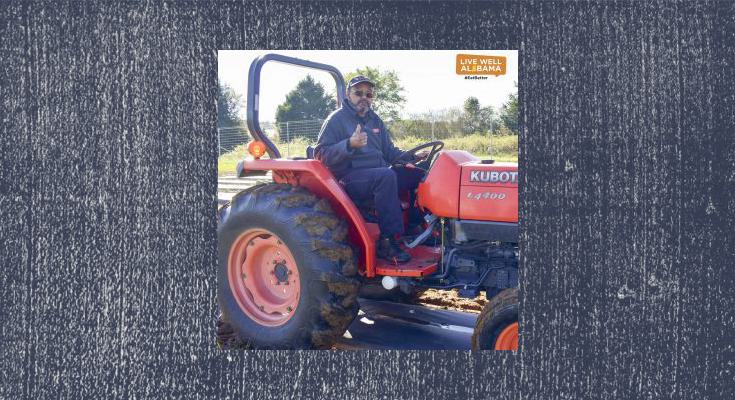By Craig Monger
A Macon County man has been helping children at George Washington Carver Elementary School (GWCES) learn about gardening by planting and harvesting strawberries.
For the past eight years, Dominguez Hurry, a Supplemental Nutrition Assistance Program (SNAP) Educator, has tended a plot behind the school and sees to the planting, caring, and harvesting of various fruits and vegetables.
A particular favorite for the students of GWCES is the long lines of strawberry plants behind the school building. Hurry, along with others, planted over 2,000 strawberry plants early in November. In six months, the garden is expected to yield thousands of strawberries for students, parents, and teachers to enjoy.
Hurry plants the strawberries with an audience of third-graders eagerly watching as Hurry does his work. Through this process, the children learn firsthand the principles of irrigation, planting, watering, and protection against pesticides necessary for the strawberry plants to thrive.
Hurry adopts the principles of the strawberry garden and applies them in the classroom through Body Quest classes. Body Quest is an initiative designed by SNAP educators that encourages healthy eating and exercise in children and parents. Body Quest seeks to increase fruit and vegetable consumption by students and their families, give students options other than sugary beverages, encourage physical activity, and help parents with recipe preparation and text reminders.
Hurry uses the strawberry garden to teach children about the benefits of healthy living by providing education about nutrition and the benefits of growing food oneself. Self-sustention is a valuable part of Hurry’s teaching method, teaching children about the sundry benefits of growing their own food.
“This is an essential garden for this school and community,” Hurry said. “We aren’t exactly a food desert out here, but there are limited resources to fresh fruit and vegetables. Additionally, the education for these students is invaluable because they will learn the ability to grow their food.”
Once the strawberries have reached maturity, the students and teachers will make an event out of picking them; this is no mean feat, considering the plants are expected to yield thousands of strawberries. The students will then be able to eat the strawberries or take them home. Teachers also pick strawberries to take home and use them to provide nutritious snacks for their students. According to Hurry, the teachers and students typically pick the entire field by themselves.
Janice Hall, the Macon County coordinator for the Alabama Cooperative Extension System (ACES), said it is evident Hurry loves teaching students the valuable lessons that come from tending a garden.
“Dominguez has a heart for teaching youth the value of growing their own fruits and vegetables,” she said.
ACES continues to highlight Hurry’s efforts for the community through a four-part video series to understand the process of growing fresh fruit from start to finish.










